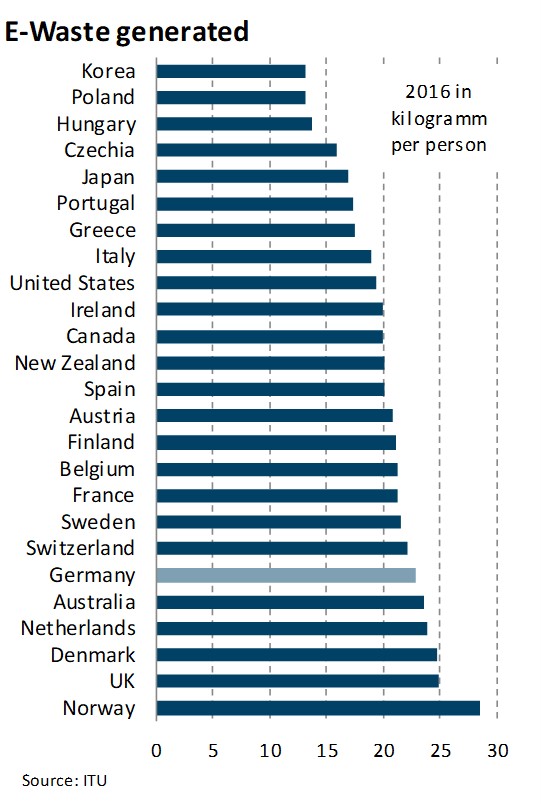
7. Environment
Digital technologies support the protection of natural resources by providing greater transparency and efficiency
Desirable Future
In the future, digital technologies will be intensively used to protect the planet’s resources and improve human’s natural environment. Software, sensors, open data and other means allow more transparency on issues that are important for people and the planet: from CO2 imprints, noise emissions and waste, to production chains, information on ingredients and the recycling of products.
Digitalization is used to save as many natural resources as possible. This happens in consumption through the shift to dematerialized products (e.g. streaming instead of using CDs), more local production, increased sharing and the reuse of items all the way to transparency about energy consumption. People have found an environmentally friendly way of dealing with easily available consumption, transport, and travel options. In that way, digitalization reinforces the impact of higher prices for non-renewable resources.
In all areas of production, care is taken to use as few non-renewable resources as possible and to do as little environmental damage as possible – including in the manufacture of mobile phones and computers. [References: 3. Work & Economy, 5. Education, 8. Transport & Mobility]
Specific Projects
CO2-Calculator
Calculates my CO2 footprint and shows ways to reduce it.
Dreckpetze
Notifications on city cleanliness (e.g. Dortmund).
Sharing-Platforms
Pumpimumpe promotes sharing and neighborhood.
Green Digital City Toolkit
Supports cities in their environmental and digital agendas.
Next Farming
Digital tools for agriculture – less fertilizer, less cost.
SonnenCommunity
Generate, store and feed decentralized power.
Recommendations for Action
- Companies: Consider environmental aspects in digitalization projects.
- Policies/NGOs: Demand or create transparency on resource use.
- Policy: Take environmental aspects into account in all digitalization projects to be funded.
- Individual: Use information possibilities, know resource consumption.
Suitable Indicators
- CO2 emissions per person and year: DE 9.5t (2016; SE 4.5t)
- Electronic waste per person and year: DE 23kg (2016; KR 13kg)
- Did you use online information on environmental topics last month? Yes/No


